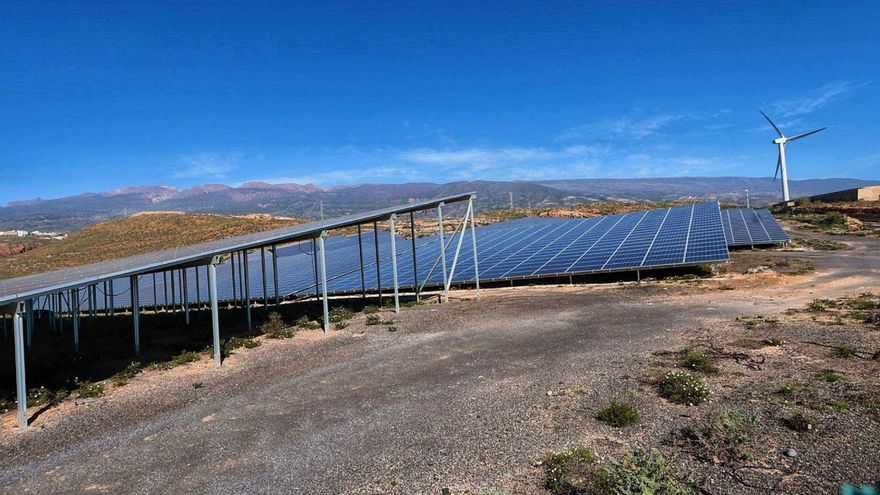
The Arico City Council has declined the designation as a Renewable Acceleration Zone (ZAR) under the decree intended to establish such areas in the Canary Islands. The local government argues that “the continued development of extensive wind and photovoltaic parks in Arico would result in serious and irreversible harm to the environment, economy, and the well-being of residents.”
Olivia Delgado, the mayor and member of the Territorial Policy Commission, Sustainability and Ecological Transition of Fecam, highlighted the necessity for “adequate planning that considers the unique characteristics of our land.” In Arico, the Canarian government has already sanctioned numerous wind and solar installations via the general interest route, “without fully assessing the cumulative effects of these developments.”
The legislation in progress, as per the report compiled by the Regional Executive and shared during the Public Consultation, aims to Enhance the role of renewable energies in the Canarian electrical framework to achieve a 58% share of generation from sources such as solar and wind. The Arico City Council maintains that this target “is unattainable without a clear definition of storage systems, distribution methods, and the optimal positioning of each energy type within the region, aspects that have yet to be addressed comprehensively.”
Andrés Martínez, the first deputy mayor, stated that “the energy system of the Canary Islands must be structured from the ground up, aiming for a balance between generation, consumption, and distribution of energy. The rapid expansion of large-scale renewable energy cannot be enforced without careful consideration of its environmental and social impacts.” He believes that “this necessitates strategic planning that takes into account the cumulative impacts created by all the infrastructure located in the same area.”
Arico contains “a significant number of wind and solar facilities” which have already resulted in notable environmental and social repercussions within the municipality. According to Agustín Tejera, the mayor for the Environment, “it is unjust for Arico to continue bearing the brunt of large projects.” He emphasised that these parks have been imposed without sufficient compensation or the essential planning to prevent damage to ecosystems and the welfare of the local population.
The presence of these sustainable energy facilities and the associated environmental challenges “places a substantial strain on the municipality.” The implementation of the ZAR would adversely impact local ecosystems and agricultural and livestock activities, fundamental to the region’s economy, the local administration argued.
The Council insists on the necessity for municipalities to actively engage in decisions regarding renewable energy project implementations. “We cannot permit projects to be forced upon us without acknowledging their direct effects on our territories. We need a voice and a choice in the matters that influence our citizens and the environment we inhabit,” stated Olivia Delgado.
The authorities in Arico advocate for encouraging self-consumption and local energy communities as more sustainable and less intrusive alternatives, rather than solely focusing on the establishment of large infrastructures.
During the consultation process, Arico requested “not to be classified as a ZAR area” and proposed to “pursue more equitable alternatives that do not worsen the already challenging circumstances of the region.” It seeks that any forthcoming regulations ensure the active involvement of municipalities, guaranteeing the minimisation of impacts and providing fair compensation for affected areas.














